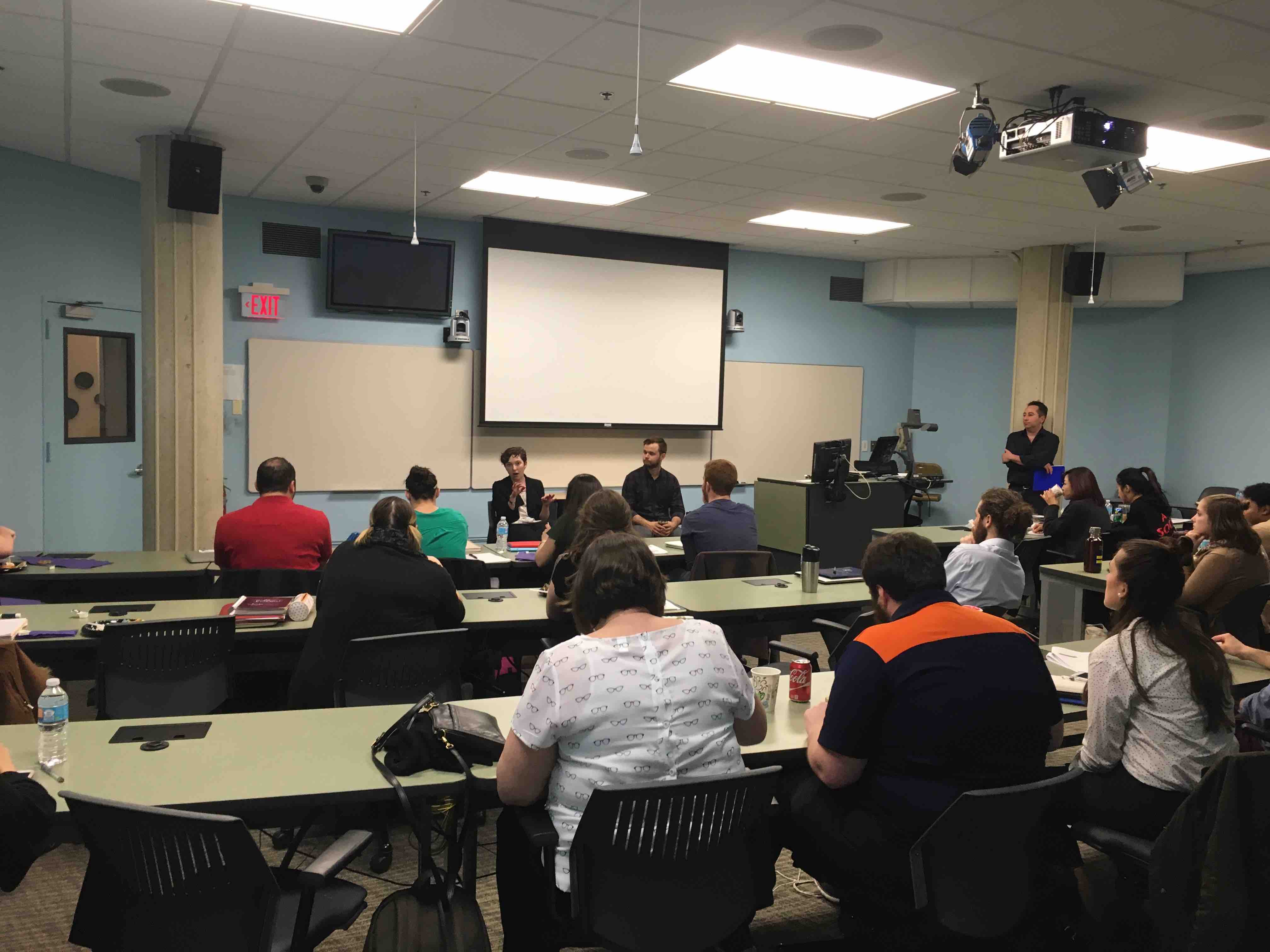
By Joe Giovannetti
On Monday, the MSLCE cohort entered their regular Professional Development class, taught by Mandi Glowen and Jonah Zeiger. However, rather than the usual lecture-format class, Glowen and Zeiger prepared an exciting panel with various guests in Chicago’s creative industries: Rebecca Adelsheim, a producer and dramaturg at Steppenwolf Theater Company, and Pat Niday, an implementation manager at Jellyvision.
The MSLCE cohort is nearing the end of the spring quarter, which means that the students are working toward securing a summer internship in the creative industries. Every student must complete a summer internship or thesis in order to complete the rigorous Master’s program, and for the students that began in the Fall of 2016, the internship marks their final experience prior to graduation. Naturally, the cohort was excited to gain insight about internships from two Chicago leaders that oversee the internship programs at their respective companies.
After the panelists introduced themselves, the floor was opened up to conversation moderated by Zeiger. After discussing the importance of a strong resume, cover letter, and assessing your “culture fit” in an organization, the conversation quickly shifted to the topic of the internship itself: How can a student make the most out of their internship experience?
Adelsheim suggested that in order to maximize an internship experience, a student must be able to set clear goals and be able to articulate the skills that they intend to build as a part of their experience. She also stressed the importance of understanding “your ability to lead and follow.” Niday echoed these sentiments, adding the importance of asking questions “right off the bat.” He suggested that the students be open and honest about the things that they do not know, as well as asking their supervisor the best way to organize their down time at the organization.
On the topic of internship struggles, Adelsheim urged the students to never struggle silently. From her perspective, it is important to voice your concerns with your supervisor, but it is imperative to be open to receiving feedback. Niday suggested structuring a weekly feedback meeting with a supervisor in order to manage potential difficulties on a regular basis.
Adelsheim and Niday left the students with some thoughtful tactics to apply, interview, secure, and learn the most that they possibly can from an internship experience. A few months from now, the entire cohort will get the chance to put this advice to the test.